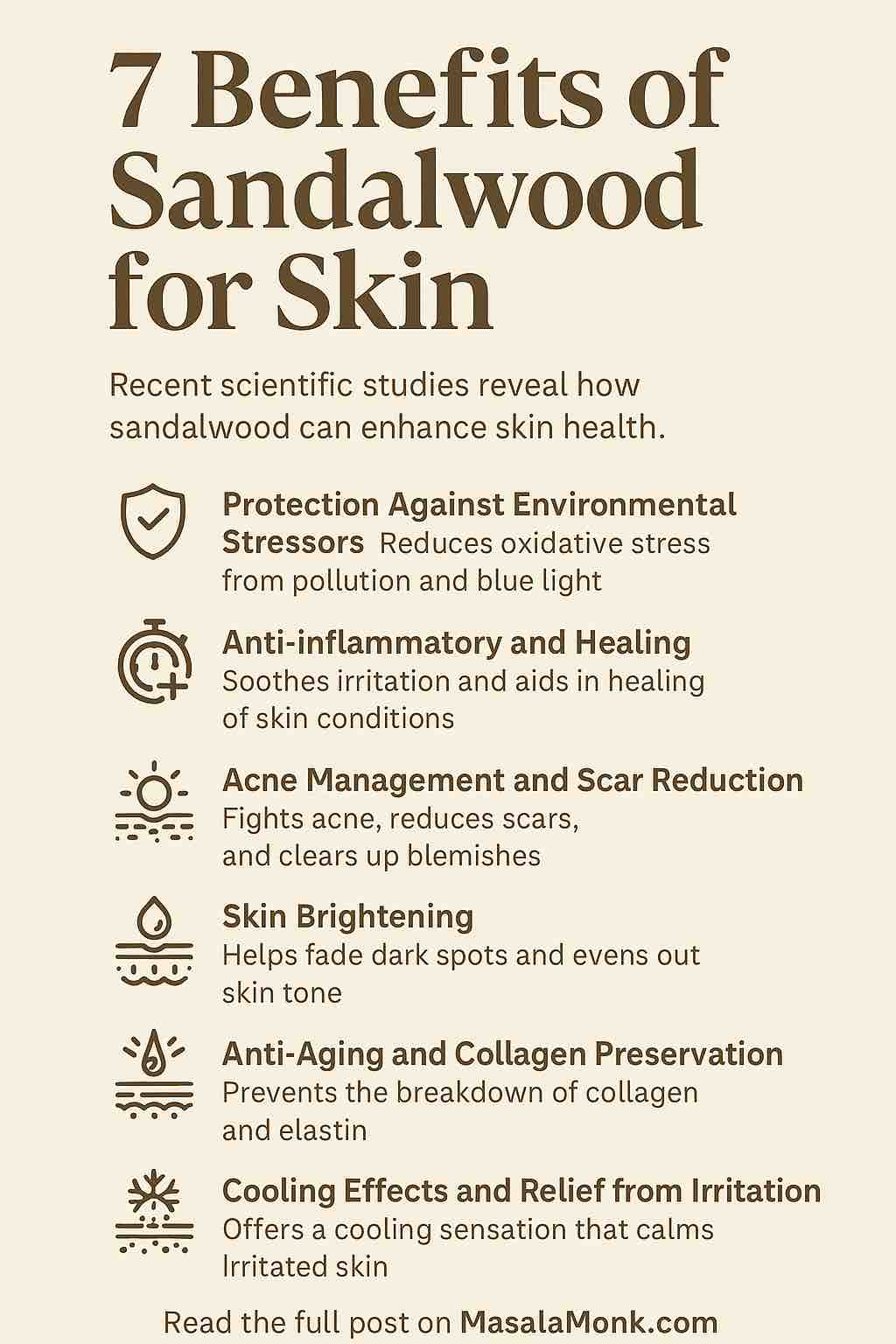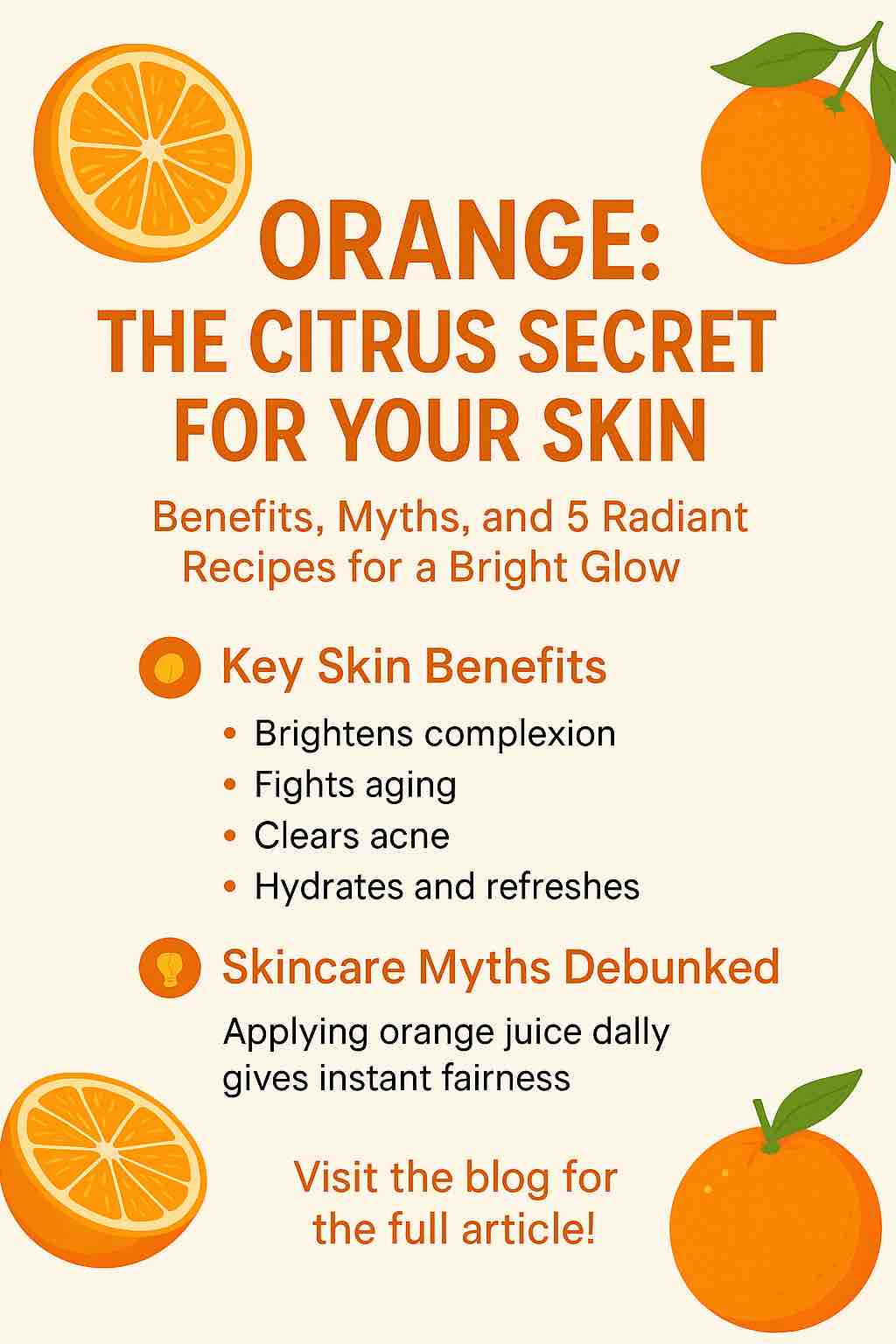
Sandalwood has been revered for centuries across cultures—not just for its intoxicating fragrance but also for its profound healing properties. Traditionally woven into the fabric of Ayurvedic and Chinese medicine, sandalwood’s reputation as a skin soother and beautifier has stood the test of time. But in today’s fast-evolving skincare landscape, where natural ingredients are being rediscovered through the lens of science, sandalwood is shining brighter than ever.
Modern research is uncovering how sandalwood’s complex chemistry supports skin health—from shielding against pollution and digital-age stressors to tackling aging and inflammation. This article dives deep into the science and history behind sandalwood’s skin benefits, offering you everything you need to know to harness this botanical marvel in your routine.
A Brief History of Sandalwood in Skincare
For thousands of years, sandalwood (mainly Santalum album) has been prized not just for its fragrant heartwood but for its therapeutic oils. In Ayurveda, sandalwood paste has been applied to wounds, burns, and skin ailments to promote healing and cool irritation. Ancient texts describe sandalwood’s ability to “calm the mind and body,” a dual effect tied closely to skin health.
In Traditional Chinese Medicine (TCM), sandalwood is known for its anti-inflammatory and detoxifying properties. It’s also been a symbol of purity and used in spiritual rituals to enhance mental clarity and well-being.
This historical reverence underpins its continued use, while modern research provides the biochemical explanations behind these effects.
The Science Behind Sandalwood: Key Active Compounds
Sandalwood’s magic largely stems from its rich composition of bioactive compounds:
- α-Santalol and β-Santalol: These sesquiterpenes have potent anti-inflammatory, antimicrobial, and antioxidant properties. They modulate the skin’s immune response and protect against bacterial infections.
- Ximenynic Acid (XA): A fatty acid recently identified in sandalwood seeds, XA has anti-aging properties by inhibiting collagenase enzymes that degrade collagen and elastin.
- Other Terpenoids and Phenolics: These contribute additional antioxidant and soothing effects.
Together, these compounds work synergistically to protect, heal, and beautify the skin.
1. Shields Skin from Urban Stressors and Blue Light
City life means constant exposure to environmental pollutants and digital screens. A 2022 study showed that Indian sandalwood oil can protect the skin from oxidative stress caused by urban dust and blue light. The oil reduced levels of squalene monohydroperoxide (SQOOH), a marker of pollution-induced skin damage.
What this means for you: Using sandalwood-based skincare products can help build a defense against premature aging triggered by environmental aggressors.
2. A Potent Natural Anti-inflammatory Agent
Sandalwood contains alpha- and beta-santalol, compounds known to reduce inflammation. Clinical studies have found sandalwood oil effective in calming skin conditions like eczema, psoriasis, and acne.
Bonus: Unlike many synthetic anti-inflammatories, sandalwood is gentle on the skin, making it ideal for sensitive skin types.
3. Combats Acne and Scarring
Acne isn’t just a teenage problem. Sandalwood’s antimicrobial properties target acne-causing bacteria like Propionibacterium acnes. In a recent quasi-experimental study, a blend of rice water and sandalwood showed significant reduction in acne severity and scarring in participants over four weeks.
Skin tip: Try a sandalwood face mask once or twice a week for clearer, smoother skin.
4. Fades Dark Spots and Evens Out Skin Tone
Hyperpigmentation and dark spots are stubborn skin issues. Sandalwood helps by inhibiting the enzyme tyrosinase, which is responsible for melanin production. This results in a brighter, more even complexion over time.
In practice: Use sandalwood with natural acids like lemon juice or rose water to enhance its skin-brightening effect (patch test first!).
5. Firms and Plumps Aging Skin
Enter ximenynic acid (XA), a lesser-known component found in sandalwood seeds. Recent findings show XA inhibits collagenase, the enzyme responsible for breaking down collagen and elastin—the building blocks of youthful skin.
Anti-aging insight: Regular use of sandalwood oil can help maintain skin elasticity, reduce the appearance of fine lines, and delay signs of aging.
6. Hydrates and Softens Without Clogging Pores
Unlike heavy creams, sandalwood oil is a lightweight emollient. It moisturizes the skin while forming a breathable barrier that locks in hydration. Plus, it doesn’t clog pores, making it a great option for all skin types, especially oily and acne-prone skin.
Hydration hack: Mix a few drops of sandalwood oil with aloe vera gel for a soothing, hydrating daily moisturizer.
7. Soothes Heat-Induced Skin Irritations
Sandalwood has long been used to cool the skin and calm sunburns, heat rashes, and prickly heat. Its natural cooling effect makes it an excellent post-sun exposure treatment.
Application: Apply sandalwood paste mixed with cucumber juice for instant relief on hot, irritated skin.
Additional Benefits Backed by Research
- Antimicrobial Effects Beyond Acne: Sandalwood is effective against common skin pathogens causing warts and fungal infections, making it a versatile topical treatment.
- Benefits for Sensitive and Eczema-Prone Skin: The gentle anti-inflammatory action helps relieve itching and swelling without harsh side effects.
- Psychological Benefits of Aromatherapy: The soothing sandalwood scent reduces stress and anxiety, which can indirectly improve skin health by reducing stress-related flare-ups.
Summary Table
| Benefit | Key Mechanism | Best Used For |
|---|---|---|
| Anti-inflammatory | Inhibits cytokines | Eczema, rosacea, acne |
| Antimicrobial | Fights bacteria & fungi | Acne, cuts, wounds |
| Acne control | Astringent & antibacterial | Pimples, oily skin |
| Skin brightening | Inhibits melanin synthesis | Hyperpigmentation, dullness |
| Anti-aging | Antioxidant protection | Wrinkles, fine lines |
| Moisturizing | Emollient action | Dry or dehydrated skin |
| Cooling & soothing | Reduces skin heat and irritation | Sunburns, prickly heat, rashes |
How to Use Sandalwood Safely in Your Skincare Routine
- Forms: Available as powder, essential oil, paste, and infused creams or serums.
- Application: For essential oils, dilute properly (1–2% in carrier oil) before topical use to avoid irritation.
- DIY Recipes: Sandalwood powder mixed with rose water or turmeric makes an effective face mask.
- Commercial Products: Look for sustainably sourced Indian sandalwood oil in trusted skincare lines.
Potential Side Effects and Precautions
- Allergies: Patch test before widespread use.
- Phototoxicity: Sandalwood is generally safe, but avoid excessive sun exposure immediately after application.
- Sustainability: Indian sandalwood is a protected species; opt for products certified for ethical sourcing.
Combining Sandalwood with Other Natural Ingredients
- Turmeric: Enhances anti-inflammatory and brightening effects.
- Rose Water: Soothes and hydrates, balancing sandalwood’s astringent nature.
- Aloe Vera: Amplifies hydration and calming benefits.
These combinations leverage multiple mechanisms for healthier skin.
Final Thoughts: Is Sandalwood the Ultimate Skincare Superhero?
With both historical reverence and modern clinical backing, sandalwood proves itself as a versatile powerhouse for skin health. Whether you’re tackling acne, aging, pigmentation, or environmental damage, this fragrant wood offers more than just a pleasant scent—it delivers real results.
As always, opt for sustainably sourced, high-quality sandalwood products and consult with a dermatologist, especially if you have specific skin conditions.
Curious to try sandalwood in your skincare routine? Or have you experienced its benefits firsthand? Drop your thoughts or questions in the comments below!
FAQs: Sandalwood for Skin
1. Is sandalwood safe for all skin types?
Yes, sandalwood is generally safe for most skin types, including sensitive and acne-prone skin, thanks to its anti-inflammatory and antimicrobial properties. However, it’s recommended to do a patch test first, especially if you have allergies or very sensitive skin.
2. How should I apply sandalwood oil on my face?
Always dilute sandalwood essential oil with a carrier oil (like jojoba or almond oil) at about 1–2% concentration before applying to your face to avoid irritation. You can also use sandalwood powder mixed with rose water or aloe vera as a soothing face mask.
3. Can sandalwood help with acne scars?
Yes, sandalwood helps reduce acne scars by promoting skin healing and reducing inflammation. Its ability to inhibit melanin production also helps fade hyperpigmentation associated with acne scars over time.
4. Does sandalwood have anti-aging properties?
Absolutely. Compounds like ximenynic acid in sandalwood help inhibit enzymes that break down collagen and elastin, preserving skin firmness and reducing fine lines and wrinkles.
5. Can I use sandalwood if I have eczema or psoriasis?
Sandalwood’s anti-inflammatory properties can soothe irritation and redness associated with eczema and psoriasis. However, consult your dermatologist before use to ensure it complements your treatment plan.
6. What are the best ways to include sandalwood in my skincare routine?
You can use sandalwood in various forms: as an essential oil (properly diluted), face masks made from sandalwood powder, or skincare products containing sandalwood extracts. Look for formulations that suit your skin type and needs.
7. Are there any side effects or risks of using sandalwood on skin?
Side effects are rare but can include allergic reactions or irritation if used undiluted. Always patch test and avoid applying before sun exposure, as some sandalwood products may increase photosensitivity.
8. Is sandalwood effective against skin infections?
Yes, sandalwood has natural antimicrobial properties that can help combat acne-causing bacteria and other skin pathogens, making it beneficial for minor wounds, fungal infections, and warts.
9. How long does it take to see results from using sandalwood for skin?
Results vary depending on skin condition and product use, but many users notice improvements in skin tone, acne reduction, and inflammation within 2 to 4 weeks of regular use.
10. How do I ensure the sandalwood products I buy are authentic and sustainable?
Look for certifications such as organic, fair trade, or sustainability seals. Indian sandalwood is protected, so choose brands committed to ethical sourcing, transparency, and environmental responsibility.
6 Health Benefits of Fennel Seeds for Skin, click here
For 6 Surprising Benefits of Gulkand for Skin, click here
Read 6 Benefits of Fennel Seeds (Saunf), click here
For videos related to Health and Wellness, Subscribe to our YouTube Channel:
Masala Monk – The Gourmet Store













